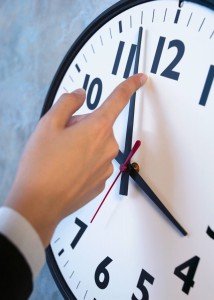 Twice a year (unless you live in Arizona) we are forced to “fall back” or “spring forward.” Twice a year, we must adjust to waking or retiring an hour different from our routine. Twice a year, our natural 24-hour cycle is disrupted as our internal clock becomes out of sync with our current day-night cycle. Twice a year, it takes many of us, like me, several days to several weeks to reset our circadian rhythms.
Twice a year (unless you live in Arizona) we are forced to “fall back” or “spring forward.” Twice a year, we must adjust to waking or retiring an hour different from our routine. Twice a year, our natural 24-hour cycle is disrupted as our internal clock becomes out of sync with our current day-night cycle. Twice a year, it takes many of us, like me, several days to several weeks to reset our circadian rhythms.
What in the world are circadian rhythms?
According to the National Institutes of Health, circadian rhythms are physical, mental and behavioral changes that follow a roughly 24-hour cycle, responding primarily to light and darkness; they are produced by natural factors within the body, but they are also affected by signals from the environment. Light is the main cue influencing circadian rhythms, turning on or turning off genes that control ones internal clocks. Circadian rhythms can influence sleep-wake cycles, hormone release, body temperature and other important bodily functions. They have been linked to various sleep disorders, such as insomnia. Abnormal circadian rhythms have also been associated with obesity, diabetes, depression, bipolar disorder and seasonal affective disorder.
As I started to think about why I am so annoyed that we have not stopped this bizarre routine, I also began to notice the changes that I feel as someone who does not live with daily pain. So, here is my experience:
- My sleep is more disrupted as my hour to retire at night and rise in the morning is changed—I really become aggravated when I fall asleep in the middle of one of my favorite TV shows.
- I feel less rested (groggy) during the day, therefore, not able to concentrate as well. That makes me feel more irritable and moody. Just ask my family and friends!
- I have experienced at least one migraine headache sometime during the first week of the time change. This continues even though my frequency of migraine events has decreased since menopause.
So, I started thinking about all of you who live with pain on a regular basis.
- Does the time change affect your level of comfort or the effectiveness of your pain treatment plan?
- Do you have more trouble sleeping during these times (as I know sleep is a precious gift for your long nights of tossing and turning)?
- Do you notice other changes around the days or weeks that follow the seasonal time change?
- Is losing an hour each spring or gaining an hour each fall more difficult?
Please share your experiences around “fall back” or “spring forward.” Is it time for this outdated tradition to be eliminated in order to promote wellness in public health?
